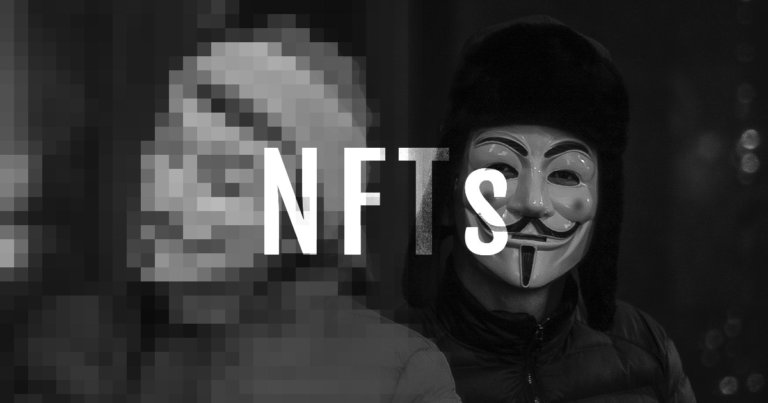 Top 4 NFT scams and how to avoid them
Top 4 NFT scams and how to avoid them Top 4 NFT scams and how to avoid them
NFTs are the latest trend in the crypto space but scammers are latching on. Here’s how to protect yourself.

Cover art/illustration via CryptoSlate. Image includes combined content which may include AI-generated content.
Spend a few minutes in cryptoland on social media and you’re likely to find netizens speaking about celebrities or virtual artists ‘dropping’ their latest works in the form of a non-fungible token (NFT).
NFTs, as they are popularly known, are cryptographic representations of tangible or intangible objects on the blockchain. These prove ownership of the underlying assets and can range from digital collectibles to real estate to crypto art and even digital pizzas.
And they have taken the world, or at least a section of it, by storm in the past weeks. To the outside observer, the niche sector has grown seemingly overnight into a $23 billion giant and has attracted fans from musicians, to entrepreneurs, to celebrities, to porn stars, to seemingly nearly all demographics.
But where’s there’s money, there are scammers. The crypto industry—due to its lack of regulatory oversight and the absence of centralized rulemakers—is a hotbed for the toughest of scammers, hackers, cyber thieves, and princes.
I’m a long term bull for digital collectibles, digital art and digital game assets … however the current ETH NFT hype train is borderline exploitive / scammy.
It’s very reminiscent of the 2017 ICO “blockchain” nonsense scams.
NFT pumpers are going to lose a lot of clout.
— Brad Mills ✍️? (@bradmillscan) April 4, 2021
NFTs aren’t far behind in that regard. The sector has not yet seen full-blown scam artists ply their trade so far, but, as the adage goes, it’s better to be safe than sorry.
“Scammers will keep innovating to make sure users fall for these. Not just NFTs, when buying anything online, a buyer needs to be aware of where and to whom they are giving away their credit card or banking information,” said Bolster CTO Shashi Prakash in a statement.
Here are four major threats and scams that may arise from the NFT sector—with inputs from security researchers at Bolster.
Piracy
This is the internet world’s oldest trick: find an online asset, copy the exact same item, and sell for the same (or slightly lesser) prices than the original. This extends to the real world too.
Sophisticated scammers have sold fake Bitcoin and fake altcoins, and fake NFTs are no big deal. Scammers can simply save ANY popular NFT they see on a marketplace like OpenSea, MakersPlace, or Rarible, and mint another identical NFT to be sold to gullible buyers.
The way to safeguard is to ALWAYS check the details of the sellers. They should likely be “verified,” have a bigger fan following, or post direct links to the artwork on their social media profiles.
Replica Stores
Apart from copying individual NFTs, scammers are copying the entire marketplace itself. This means fake domains, ads, and social media posts that lead to an entirely fake website for popular NFT marketplaces—with the sole intention of offering ridiculously beautiful NFTs at dirt cheap prices to scam a few hundred (or thousand) dollars from you.
The scam itself can either be via ‘selling’ fake NFTs on a fake website, or by stealing credit card credentials and personal information.
Good pic.twitter.com/RrNHooe74J
— Tom Shapira (@tomshaps) March 30, 2021
The key here is, once again, to always check and recheck the spelling of whichever marketplace site you’re on and ensuring there’s no firewall that had to be bypassed to access that.
Most NFT marketplaces also run on Ethereum and are permissionless, meaning they would never ask for credit card information or credit card information.
Fake Airdrops
Next are fake airdrops or tokens that have no usage and are designed as outright scams. These manifest in the form of “giveaways” wherein users could be asked to purchase tokens or NFTs in order to receive newer tokens or NFTs.
Preventing this is a bit tricky as legitimate airdrops and giveaways are a popular part of the crypto market, but as with other points, checking all correspondence is from official sites or a reputable founder is a good way to avoid being scammed.
Social Media Scams
Last is the classic social media scam, one that is a BIG concern in the cryptocurrency space. These see scammers approach users on Twitter, Telegram, or Discord as “managers” or “helpful community members,” only to attract them to an enticing giveaway, replica store, or fake NFT sale.
The way to avoid this is to remember the following: NO team member of an official, reputed crypto project would ever directly message you or solicit your business, and anyone who tries so is most likely a scammer.



 CryptoQuant
CryptoQuant 















































































